In today’s fast-paced digital world, businesses are no longer satisfied with one-size-fits-all CRM systems. Customer expectations are evolving, and companies need more innovative, more personalised solutions to stay ahead. That’s where bespoke CRM development trends
come into play—helping organisations deliver better customer experiences, streamline processes, and stay competitive.
In this blog, we’ll explore the top 5 latest updates shaping CRM development today, along with the innovations and digital trends businesses should watch out for.
Looking for help with creating a tailored CRM system that transforms how you connect with customers? Or do you need a trusted provider for bespoke solutions that truly meet your business needs? Call us today on 0800 999 1094 or email info@printingprogress.co.uk
to get started.
A bespoke CRM is not just about managing data—it's about creating meaningful customer relationships, improving efficiency, and staying ahead of the competition.
Why Bespoke CRM Development Is Essential
Every business has unique workflows, customer touchpoints, and goals. Off-the-shelf CRM systems may offer basic functionality, but they often struggle to adapt to evolving business requirements. This is why custom-built CRMs are becoming increasingly valuable.
With bespoke CRM development innovations, companies can enjoy:
- Tailored workflows
- Seamless integration with existing tools
- Enhanced reporting for decision-making
- Future-proof scalability
But the real question is: what’s driving these digital trends forward today? Let’s dive into the top 5.
Top 5 Bespoke CRM Development Trends
1. AI-Driven Automation For Smarter Workflows
Artificial Intelligence (AI) is no longer a buzzword—it’s a business necessity. In the realm of CRM, AI-driven automation is one of the most significant innovations. From predictive lead scoring to automated customer support, AI enables businesses to reduce manual work and enhance accuracy.
For example, imagine a sales team receiving AI-powered insights on which leads are most likely to convert. This not only saves time but also ensures teams focus on high-value opportunities.
By adopting AI, businesses are embracing the latest, intelligent, data-driven, and customer-focused CRM development practices.
2. Cloud-Based Flexibility And Security
As remote and hybrid working models continue, cloud-based CRMs remain a central digital trend. Businesses need access to their CRM from anywhere, at any time—without compromising on security.
Cloud platforms allow:
- Easy collaboration between teams
- Real-time updates across multiple devices
- Advanced data encryption and security features
The shift to cloud is not just about flexibility—it’s also about building resilient systems that can adapt quickly to what’s new in bespoke CRM development.
3. Enhanced Data Analytics And Insights
Data is the backbone of customer management. The latest updates in CRM development place a strong emphasis on advanced analytics. Modern CRMs can now generate customised reports, track KPIs, and identify patterns in customer behaviour.
With deeper insights, businesses can:
- Understand customer preferences
- Refine sales strategies
- Improve retention rates
This isn’t just a trending feature in bespoke CRM development—it’s a necessity for companies looking to outperform their competitors.
4. Seamless Integration With Business Tools
A CRM should never exist in isolation. The best bespoke CRM development trends now focus on seamless integration with other essential tools, including:
- Marketing automation platforms
- Finance software
- Communication apps (like Slack or Teams)
Integration ensures that all departments operate with a single source of truth, eliminating duplication and ensuring that customer data remains accurate and up-to-date.
At Printingprogress Ltd, we’ve seen how integrated CRMs drastically improve efficiency across entire organisations.
5. Personalisation At Scale
Modern customers expect more than generic communication. They want tailored experiences that reflect their history and preferences. The latest bespoke CRM development practices now place personalisation at the heart of design.
Personalisation includes:
- Custom dashboards for different teams
- Targeted customer interactions
- Personalised recommendations based on data
By leveraging bespoke CRM development innovations, businesses can establish meaningful connections with customers while enhancing loyalty and increasing lifetime value.
Conclusion
The top 5 bespoke CRM development trends—AI automation, cloud adoption, data analytics, tool integration, and personalisation—are reshaping how businesses manage customer relationships. By embracing these latest updates and digital trends, companies can ensure they’re not just keeping up but staying ahead of the competition.
At Printingprogress Ltd, we pride ourselves on creating CRMs tailored to each client’s needs. If you’re ready to explore what’s new in bespoke CRM development or need guidance on bespoke CRM development innovations, we’re here to help.
We also keep a close eye on modern tech trends, ensuring your CRM solution is always built with the future in mind.
Contact us today at 0800 999 1094 or email info@printingprogress.co.uk to start building a smarter CRM for your business.
FAQs
1. What are the key benefits of bespoke CRM development?
Bespoke CRMs provide flexibility, scalability, and seamless integration. Unlike generic solutions, they’re tailored to your workflows and goals.
2. How long does it take to develop a bespoke CRM?
Development time varies depending on requirements, integrations, and features. On average, it can take several weeks to a few months.
3. Are bespoke CRMs suitable for small businesses?
Absolutely. Small businesses benefit from CRMs tailored to match their budget and future growth needs. Tailored solutions often deliver a better return on investment.
4. How secure are cloud-based bespoke CRMs?
With advanced encryption and multi-factor authentication, modern cloud CRMs are highly secure. Security is often stronger than traditional on-premise systems.
5. How do I know which CRM features my business needs?
Start by evaluating your goals—whether it’s improving sales, marketing, or customer service. A consultation with us ensures your CRM is built around your needs.


 Eco friendly, sustainably sourced recycled FCS certified print
Eco friendly, sustainably sourced recycled FCS certified print Takeaway Screens
Takeaway Screens Postal Boxes
Postal Boxes